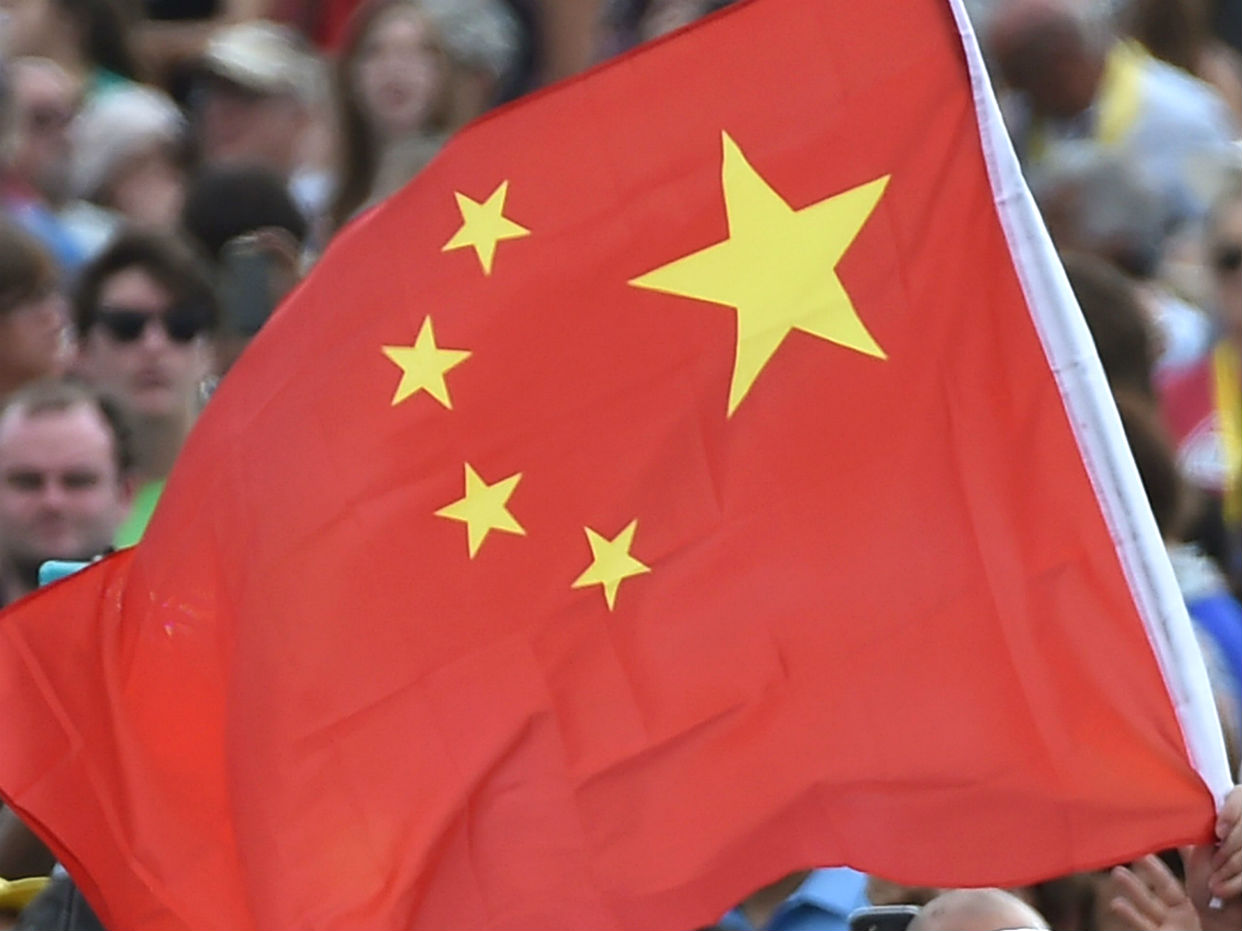Baby born four years after parents’ death in car crash
Surrogate mother from Laos gave birth to the boy after legal battle in China over use of frozen embryos

A free daily email with the biggest news stories of the day – and the best features from TheWeek.com
You are now subscribed
Your newsletter sign-up was successful
A baby has been born in China, four years after both his parents were killed in a car accident.
The boy, called Tiantian - Sweetie in Mandarin - was born in a hospital in Guangzhou, Guangdong province, “after his grandparents won a year-long court battle to use a frozen embryo”, says China Daily. A surrogate mother from Laos gave birth to the child in December, according to Chinese media reports.
His late parents, Shen Jie and his wife Liu Xi, had been undergoing fertility treatment before their death in a road accident in East China’s Jiangsu province.
The Week
Escape your echo chamber. Get the facts behind the news, plus analysis from multiple perspectives.

Sign up for The Week's Free Newsletters
From our morning news briefing to a weekly Good News Newsletter, get the best of The Week delivered directly to your inbox.
From our morning news briefing to a weekly Good News Newsletter, get the best of The Week delivered directly to your inbox.
Following the crash, the parents of both Shen and Liu spent years trying to persuade the authorities to hand over frozen embroyos from the dead woman that were stored at a local hospital. They finally obtained a court order allowing them to obtain four of the embryos, before “smuggling them over the border to Laos and finding a surrogate mother”, The Times reports.
Surrogacy is illegal in China. The case was further complicated by the fact that “China does not have a legal precedent for the parents of couples inheriting their children’s embryos”, reports the South China Morning Post.
Even after the court ruling in favour of the grandparents, the hospital holding the embryos insisted it would only give them to another medical institute, “but no other Chinese clinic would take them because of legal concerns”, adds The Times.
Dr Ding Lijun, from the hospital that originally held the embryos, told China Daily that although hospital authorities were sympathetic to the families involved, they were cautious about handing embryos to individuals.
A free daily email with the biggest news stories of the day – and the best features from TheWeek.com
“There are thresholds for practicing every technology, and without the threshold, which we must strictly abide by, the technology runs the risk of being abused,” she said.
The grandparents finally secured the embryos after finding a hospital in Laos willing to impregnate the surrogate.
Hu Xingxian, Tianian’s maternal grandmother, said: “We named him Sweetie, because we hoped his arrival would bring sweetness to us after the bitterness.”
Their next dilemma is how to tell Tiantian about his unusual start in life. The boy’s paternal grandfather, Shen Xinnan, was quoted as saying that he only plans to tell Tiantan what happened to his parents when he is older, and that in the meantime, he will be told his parents are living overseas.
“For sure we will tell him what happened - what choice do we have?” Shen said.
-
 What to know before filing your own taxes for the first time
What to know before filing your own taxes for the first timethe explainer Tackle this financial milestone with confidence
-
 The biggest box office flops of the 21st century
The biggest box office flops of the 21st centuryin depth Unnecessary remakes and turgid, expensive CGI-fests highlight this list of these most notorious box-office losers
-
 What are the best investments for beginners?
What are the best investments for beginners?The Explainer Stocks and ETFs and bonds, oh my
-
 Epstein files topple law CEO, roil UK government
Epstein files topple law CEO, roil UK governmentSpeed Read Peter Mandelson, Britain’s former ambassador to the US, is caught up in the scandal
-
 Iran and US prepare to meet after skirmishes
Iran and US prepare to meet after skirmishesSpeed Read The incident comes amid heightened tensions in the Middle East
-
 Israel retrieves final hostage’s body from Gaza
Israel retrieves final hostage’s body from GazaSpeed Read The 24-year-old police officer was killed during the initial Hamas attack
-
 China’s Xi targets top general in growing purge
China’s Xi targets top general in growing purgeSpeed Read Zhang Youxia is being investigated over ‘grave violations’ of the law
-
 Panama and Canada are negotiating over a crucial copper mine
Panama and Canada are negotiating over a crucial copper mineIn the Spotlight Panama is set to make a final decision on the mine this summer
-
 Why Greenland’s natural resources are nearly impossible to mine
Why Greenland’s natural resources are nearly impossible to mineThe Explainer The country’s natural landscape makes the task extremely difficult
-
 Iran cuts internet as protests escalate
Iran cuts internet as protests escalateSpeed Reada Government buildings across the country have been set on fire
-
 US nabs ‘shadow’ tanker claimed by Russia
US nabs ‘shadow’ tanker claimed by RussiaSpeed Read The ship was one of two vessels seized by the US military